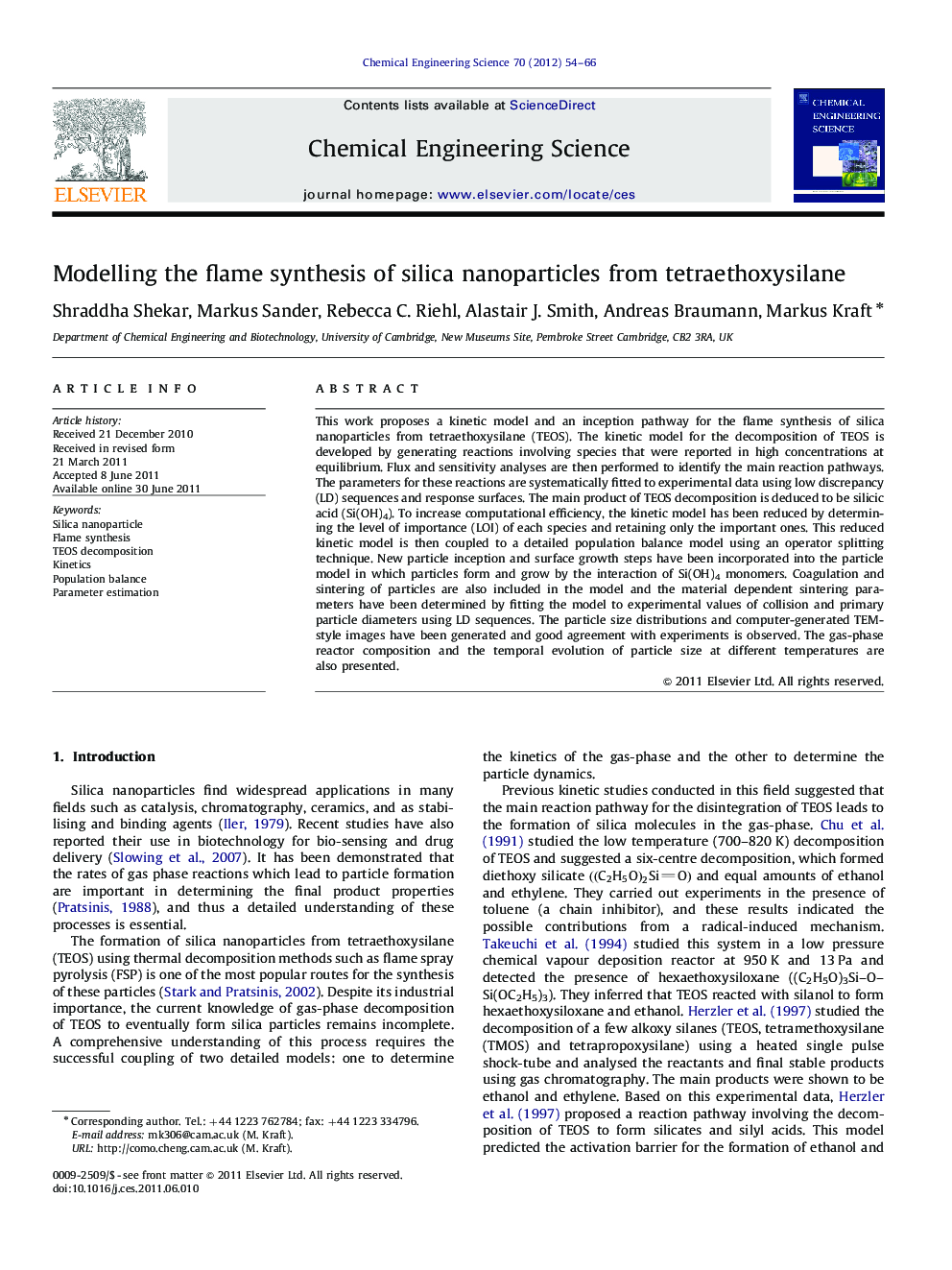| کد مقاله | کد نشریه | سال انتشار | مقاله انگلیسی | نسخه تمام متن |
|---|---|---|---|---|
| 155820 | 456912 | 2012 | 13 صفحه PDF | دانلود رایگان |

This work proposes a kinetic model and an inception pathway for the flame synthesis of silica nanoparticles from tetraethoxysilane (TEOS). The kinetic model for the decomposition of TEOS is developed by generating reactions involving species that were reported in high concentrations at equilibrium. Flux and sensitivity analyses are then performed to identify the main reaction pathways. The parameters for these reactions are systematically fitted to experimental data using low discrepancy (LD) sequences and response surfaces. The main product of TEOS decomposition is deduced to be silicic acid (Si(OH)4). To increase computational efficiency, the kinetic model has been reduced by determining the level of importance (LOI) of each species and retaining only the important ones. This reduced kinetic model is then coupled to a detailed population balance model using an operator splitting technique. New particle inception and surface growth steps have been incorporated into the particle model in which particles form and grow by the interaction of Si(OH)4 monomers. Coagulation and sintering of particles are also included in the model and the material dependent sintering parameters have been determined by fitting the model to experimental values of collision and primary particle diameters using LD sequences. The particle size distributions and computer-generated TEM-style images have been generated and good agreement with experiments is observed. The gas-phase reactor composition and the temporal evolution of particle size at different temperatures are also presented.
► A kinetic model developed for flame synthesis of SiNPs from TEOS.
► The role of silica acid (Si(OH)4) investigated in the inception pathway.
► Kinetic model coupled to detailed population balance model to simulate particle dynamics.
► Final particle size distributions and TEM-style images show good agreement with experiments.
Journal: Chemical Engineering Science - Volume 70, 5 March 2012, Pages 54–66